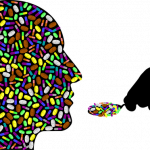Impulse control refers to the ability of an individual to regulate their behavior, thoughts or emotions. Impulse control disorders are characterized by a failure to resist impulses that may lead to harmful consequences for oneself or others. These disorders vary in severity and can have significant impacts on daily functioning, social relationships, and overall quality of life.
The symptoms of impulse control disorders include repeated acts of self-destructive behavior such as substance abuse, pathological gambling, sexual addiction or compulsive shopping among others. Individuals with these conditions often experience intense urges or cravings that they cannot resist leading to negative effects on their personal and professional lives.
In this article, we will explore the different types of impulse control disorders and their associated symptoms along with potential treatments available for those who struggle with them.
Understanding Impulse Control Disorders
 Impulse control disorders are a set of psychiatric conditions that affect an individual’s ability to resist urges or impulses that may lead to harmful consequences. These disorders can impact various areas of one’s life, including daily activities and relationships with others.
Impulse control disorders are a set of psychiatric conditions that affect an individual’s ability to resist urges or impulses that may lead to harmful consequences. These disorders can impact various areas of one’s life, including daily activities and relationships with others.
Causes and diagnosis of impulse control disorders vary depending on the specific disorder. Some factors that may contribute include genetics, brain chemistry imbalances, past trauma or abuse, and environmental stressors. Diagnosis is typically made through a comprehensive evaluation by a mental health professional who will take into account symptoms and medical history.
Individuals with impulse control disorders may struggle with impulsivity in several ways. They may have difficulty controlling their emotions, leading to outbursts or aggression. Additionally, they may engage in risky behaviors such as substance abuse or gambling without considering the potential negative outcomes.
The impact of these disorders on daily life and relationships can be significant. Relationships may suffer due to impulsive behavior causing harm to loved ones or breaking trust. Individuals may also experience financial difficulties from overspending or legal issues resulting from criminal activity related to their impulsivity.
Overall, it is crucial for individuals experiencing symptoms of impulse control disorders to seek help from a mental health professional for proper diagnosis and treatment options available.
Types Of Impulse Control Disorders
Understanding the symptoms of impulse control disorders is important for identifying and treating these conditions. Individuals with impulse control disorders experience difficulty in controlling their impulses, leading to behaviors that can be harmful to themselves or others.
Some common symptoms include repeated acts of aggression towards others, stealing, gambling excessively, engaging in risky sexual behavior, and substance abuse.
The causes of impulse control disorders are not well understood. However, research suggests that a combination of genetic and environmental factors may contribute to their development. Studies have found that individuals who have a family history of mental health conditions such as bipolar disorder or schizophrenia may be at an increased risk for developing impulse control disorders.
Additionally, exposure to stressors such as trauma or abuse during childhood may also increase the likelihood of developing these conditions.
The prevalence of impulse control disorders varies depending on the specific condition being studied. For example, intermittent explosive disorder affects approximately 5% of the population while kleptomania affects less than 1%.
These conditions are more commonly diagnosed in males than females; however, this could be due to differences in reporting rather than actual rates of occurrence.
There is often a relationship between impulse control disorders and other mental health conditions. Many individuals with these disorders also struggle with anxiety or depression.
Substance use disorders are also frequently co-occurring with impulse control disorders. Addressing both the underlying cause(s) and symptoms associated with each co-occurring condition through integrated treatment approaches is essential for successful recovery from impulsivity-related issues.
Compulsive Shopping
Compulsive shopping is a type of impulse control disorder where individuals experience an overwhelming urge to shop, even when it leads to negative consequences. This behavior can interfere with daily life activities and relationships, leading to financial problems, conflict with loved ones, and psychological distress.
Causes of compulsive shopping are not fully understood; however, research suggests that multiple factors contribute to the development of this disorder. Some studies have indicated that genetic predisposition may play a role in impulsivity and addiction-like behaviors. Additionally, environmental factors such as social pressure or exposure to advertisements may also influence this condition.
The consequences of compulsive shopping can be severe and far-reaching. Financial difficulties often result from excessive spending on unneeded items or hoarding possessions. The accumulation of clutter in living spaces can lead to isolation and decreased quality of life for those affected by the disorder. Moreover, many people who struggle with compulsive shopping report feelings of guilt, shame, anxiety, depression, and stress associated with their behavior.
To manage compulsive shopping effectively, treatment should address both the underlying causes and symptoms associated with this disorder. Here are four potential approaches:
1. Cognitive-behavioral therapy, which focuses on changing thought patterns related to impulsive behavior.
2. Family counseling aimed at improving communication techniques among family members.
3. Medications such as antidepressants or anti-anxiety drugs prescribed by psychiatrists in conjunction with psychotherapy.
4. Support groups designed specifically for individuals struggling with compulsive shopping.
Although there is no single known cause for compulsive shopping behavior, researchers have found that genetics and environmental influences may play a significant role in its development. Fortunately, effective treatments exist that focus on addressing both the underlying causes as well as the symptoms associated with this condition so that sufferers can reduce their risk of developing serious mental health issues while regaining control over their lives once more!
Pathological Gambling
Pathological gambling, also known as compulsive gambling or gambling disorder, is a type of impulse control disorder characterized by persistent and recurrent problematic gambling behavior that disrupts personal, social, and occupational activities.
According to the Diagnostic and Statistical Manual of Mental Disorders (DSM-5), pathological gambling is classified as an addictive disorder due to its similarities with substance abuse disorders.
Causes of pathological gambling are complex and multifactorial. Genetic factors play a significant role in determining susceptibility to developing this condition. Studies have reported higher prevalence rates of problem gambling among families of individuals with gambling addiction compared to those without such family history.
Psychological factors such as impulsivity, sensation-seeking behaviors, low self-esteem, anxiety, depression, and trauma may also contribute to the development of problematic gambling behavior.
The effects of pathological gambling can be devastating for individuals and their loved ones. Pathological gamblers often experience financial difficulties due to excessive betting and borrowing money from others. The consequences may lead to bankruptcy, debt accumulation or loss of assets such as homes and businesses.
Socially, it can cause strained relationships with partners, friends or colleagues while personally affecting mental health resulting in feelings of guilt, shame or hopelessness.
Pathological gambling is a serious condition that requires timely diagnosis and treatment by qualified healthcare professionals. Cognitive-behavioral therapy has been found effective in managing symptoms associated with problematic gambling behavior by addressing cognitive distortions related to the perception of winning probabilities and providing skills training on managing urges and cravings effectively.
Family therapy sessions can help educate loved ones about the nature of pathology while promoting open communication channels for support through recovery processes.
Sexual Addiction
Pathological gambling is a behavioral addiction characterized by the compulsive urge to gamble despite negative consequences. Individuals with this disorder experience an uncontrollable impulse to engage in gambling activities, leading them to spend excessive amounts of time and money on games of chance.
One key symptom of pathological gambling is loss of control over one’s behavior. This can manifest as an inability to stop gambling even when facing financial ruin or other serious problems.
Another symptom is preoccupation with gambling, which may lead individuals to neglect important responsibilities such as work and family obligations.
Causes of pathological gambling are complex and multifactorial. Research suggests that genetic factors may play a role in predisposing some individuals to develop addictive behaviors like gambling. Environmental factors such as exposure to high levels of stress, trauma, or substance abuse may also contribute to the development of this disorder.
Consequences of pathological gambling can be devastating for individuals and their families. Financial hardship is a common result, often leading gamblers into debt and bankruptcy. Relationship problems including divorce and social isolation are also commonly associated with this condition. In severe cases, suicide ideation has been reported among those struggling with this addiction.
– Seek professional help: If you suspect that you or someone you know may have a problem with pathological gambling, seek professional help from trained mental health providers.
– Build support networks: Joining support groups like Gamblers Anonymous can provide valuable guidance and encouragement for overcoming addiction.
– Practice self-care: Engage in healthy habits such as exercise, meditation, and adequate sleep to manage stress levels and improve overall well-being.
Sexual addiction refers to persistent patterns of sexual thoughts, fantasies, urges, or behaviors that negatively impact an individual’s life functioning. The hallmark characteristic of sexual addiction is continued engagement in these behaviors despite significant harm or distress caused by them.
Here are three potential signs that someone might be struggling with sexual addiction:
1) Loss of Control – Like many addictions, sexual addiction is characterized by a loss of control over one’s own behaviors. Individuals struggling with this disorder may find themselves engaging in sexual activities even when they know it will have negative consequences.
2) Preoccupation – Another common symptom of sexual addiction is preoccupation, or an obsessive focus on sex and related activities. This can lead to neglecting important responsibilities such as work or family obligations.
3) Consequences – Sexual addiction can also have serious consequences for individuals and their loved ones. These may include relationship problems, financial difficulties, and legal issues such as arrest or imprisonment.
Substance Abuse
Impulse control disorder is often linked to substance abuse, making it an important aspect of dual diagnosis treatment. Individuals with impulse control disorders may struggle with managing their cravings and urges to use drugs or alcohol.
Triggers for substance abuse can include stress, anxiety, trauma, and other emotional issues. People who have difficulty controlling their impulses are particularly susceptible to these triggers. They may turn to substances as a way to cope with difficult emotions or situations without considering the consequences.
Cravings are another common symptom that individuals with impulse control disorders experience when trying to maintain sobriety. These intense desires for drugs or alcohol can be overwhelming and challenging to overcome. It is essential for those in recovery from substance abuse to learn coping strategies for dealing with cravings.
Treatment options vary depending on the individual’s specific needs but typically involve therapy, support groups, medication management, and lifestyle changes. Dual diagnosis treatment is especially effective because it addresses both the underlying mental health condition and addiction simultaneously.
Individuals struggling with impulse control disorders should seek professional help before their behavior becomes unmanageable. With proper treatment and support, they can learn healthy coping mechanisms for managing triggers and overcoming cravings while maintaining long-term sobriety.
Treatments For Impulse Control Disorders
As previously discussed, impulse control disorders can cause significant distress to individuals and their loved ones. Fortunately, there are effective treatments available that can help manage symptoms and improve overall quality of life.
One such treatment is cognitive behavioral therapy, which has been found to be helpful in treating a range of mental health conditions including impulse control disorders. CBT aims to identify and change negative thought patterns and behaviors associated with the disorder. Through this process, individuals learn coping mechanisms and strategies to resist impulsive urges. CBT may involve individual or group therapy sessions and typically lasts several months.
In addition to CBT, medication management may also be recommended as part of an overall treatment plan for impulse control disorders. Medications such as antidepressants or antipsychotics have been shown to reduce impulsivity in some cases. However, it is important to note that medication should always be used under the guidance of a healthcare professional.
It is worth noting that while these treatments can be highly effective in managing symptoms of impulse control disorders, they are not one-size-fits-all solutions. Each individual’s experience with the disorder is unique, and therefore requires an approach tailored specifically for them.
Overall, seeking out professional support from trained mental health professionals who specialize in treating impulse control disorders is crucial for those struggling with these conditions. With proper diagnosis and personalized treatment plans that incorporate evidence-based approaches like CBT and medication management, many people find relief from their symptoms and are able to lead fulfilling lives despite their struggles.
Frequently Asked Questions
Can Impulse Control Disorders Be Genetic?
Impulse control disorders are a group of psychiatric conditions characterized by the inability to resist urges or impulses that may be harmful to oneself or others.
While these conditions can have various causes, including environmental factors such as stress and trauma, there is evidence suggesting a genetic predisposition to impulse control disorders.
Studies have shown that certain genes may increase an individual’s susceptibility to developing these disorders, although it should be noted that genetics alone do not determine one’s likelihood of developing an impulse control disorder.
Environmental factors such as upbringing, social support, and exposure to stressors also play significant roles in the development of these disorders.
Further research is needed to better understand the complex interplay between genetics and environment in the manifestation of impulse control disorders.
How Do Impulse Control Disorders Affect Personal Relationships?
Impulse control disorders can significantly impact personal relationships, with a reported prevalence of 4% in the general population.
These disorders may manifest as poor communication skills or trust issues that can be detrimental to maintaining healthy connections with others.
Individuals who struggle with impulse control may have difficulty regulating their emotions and actions, leading them to act impulsively without considering the consequences of their behavior.
This can lead to a breakdown in trust between partners, family members, or friends, making it challenging for those affected by this disorder to maintain meaningful relationships.
Seeking professional help is recommended to manage symptoms and improve interpersonal functioning.
Can Mindfulness And Meditation Be Helpful In Managing Impulse Control Disorders?
Mindfulness techniques and Cognitive Behavioral Therapy have been found to be effective in managing impulse control disorders.
Mindfulness-based interventions aim to increase awareness of thoughts, emotions, and bodily sensations. This increased self-awareness can help individuals recognize the triggers that lead to impulsive behavior and develop alternative responses.
CBT focuses on identifying negative thought patterns that contribute to impulsive actions and replacing them with more positive ones.
Both mindfulness and CBT have demonstrated promising results in reducing impulsivity, improving emotional regulation, and enhancing overall well-being for those struggling with impulse control disorders.
Are There Any Natural Remedies Or Alternative Treatments For Impulse Control Disorders?
Impulse control disorders can significantly impair an individual’s daily functioning and quality of life. While medication is a common treatment, natural remedies such as herbal supplements have been explored as alternative options. However, there is limited research on the efficacy and safety of these supplements in managing impulse control disorders.
Cognitive behavioral therapy (CBT) has shown promising results in treating impulsivity by addressing maladaptive thoughts and behaviors. CBT focuses on developing coping skills, improving emotion regulation, and enhancing decision-making abilities through structured sessions with a mental health professional.
Nevertheless, further studies are needed to evaluate the effectiveness of both natural remedies and CBT in managing impulse control disorders.
Can Impulse Control Disorders Be Completely Cured Or Only Managed?
Impulse control disorders refer to a range of behavioral conditions that cause individuals to engage in impulsive and often harmful actions, such as substance abuse, gambling, or binge eating.
The causes of these disorders are not fully understood but may involve genetic factors, brain chemical imbalances, or environmental triggers.
While there is no known cure for impulse control disorders, various treatments can be effective in managing symptoms and helping people achieve greater self-control.
These include psychotherapy, medication, support groups, and lifestyle changes.
However, successful treatment depends on the specific disorder and individual circumstances involved.
As with many mental health issues, early detection and intervention offer the best chance for positive outcomes.
Conclusion
Impulse control disorders can manifest in a variety of ways, including compulsive shopping, gambling, sexual behavior or substance abuse. These behaviors are often driven by the inability to resist an urge or impulse, which results in negative consequences for the individual and those around them.
Though there is evidence that some cases of impulse control disorders may be genetic, it is not yet fully understood how these disorders develop. Individuals with impulse control disorders often struggle with maintaining healthy personal relationships due to their impulsive behaviors. This can lead to feelings of guilt and shame as well as social isolation.
However, mindfulness and meditation practices have been found to be helpful in managing symptoms of impulse control disorders. Additionally, natural remedies such as herbal supplements and acupuncture have shown promise in reducing impulsivity.
While there is no cure for impulse control disorders, they can be managed through various treatments including therapy and medication. It’s important for individuals struggling with these issues to seek professional help from mental health professionals who specialize in treating impulse control disorders. With proper treatment and support, individuals can learn strategies for recognizing triggers and managing impulses so that they can live healthier and happier lives.









